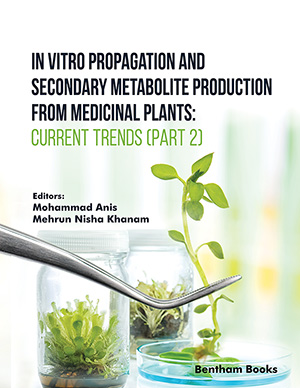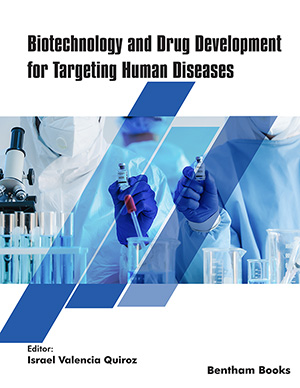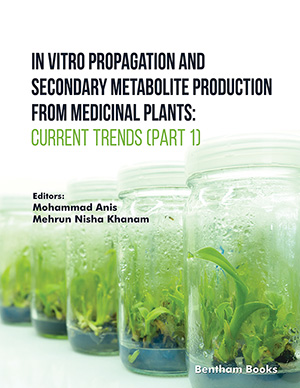Abstract
The successful treatment of renal cancer remains a therapeutic challenge. Clear Cell Renal Cell Carcinoma (ccRCC) is resistant to conventional radio and chemotherapy, but complete response has been observed after immunotherapy with high-dose interleukin-2 (IL-2) and interferon (IFN)-α. Nevertheless, immunotherapy strategies have shown response rates in the range of 5 to 10%. For the past 20 years, the mechanisms of treatment resistance have been studied, and immune escape of tumours in cancer development and spread has been a broadly investigated phenomenon. Multiple studies have revealed that genomic abnormalities of ccRCC promote the loss of major histocompatibility complex (MHC) molecules on the renal cancer cell surface, resulting in immune response resistance. Studies have shown that IFN-α-induced signalling pathways are deregulated in ccRCC cells and promote immune escape. Polymorphisms of multiple genes, including STAT3, have been shown to trigger immune-response deregulation. Investigation and understanding of the mechanisms of renal cell cancer immunotherapy resistance are extremely important for the design of rational combinatorial approaches and other novel therapies in the future. This mini-review focuses on immunotherapy resistance mechanisms in ccRCC.
Keywords: Renal cell carcinoma, immunotherapy resistance, renal cell cancer chemotherapy, renal cell cancer radiotherapy, IL-2 induced immunotherapy, IFN induced immunotherapy, TKI induced immunotherapy.
Current Signal Transduction Therapy
Title:Immunotherapy Resistance Mechanisms in Renal Cell Cancer
Volume: 8 Issue: 3
Author(s): Katarzyna Kaminska, Gabriel Wcislo, Anna M. Czarnecka, Salem Chouaib and Cezary Szczylik
Affiliation:
Keywords: Renal cell carcinoma, immunotherapy resistance, renal cell cancer chemotherapy, renal cell cancer radiotherapy, IL-2 induced immunotherapy, IFN induced immunotherapy, TKI induced immunotherapy.
Abstract: The successful treatment of renal cancer remains a therapeutic challenge. Clear Cell Renal Cell Carcinoma (ccRCC) is resistant to conventional radio and chemotherapy, but complete response has been observed after immunotherapy with high-dose interleukin-2 (IL-2) and interferon (IFN)-α. Nevertheless, immunotherapy strategies have shown response rates in the range of 5 to 10%. For the past 20 years, the mechanisms of treatment resistance have been studied, and immune escape of tumours in cancer development and spread has been a broadly investigated phenomenon. Multiple studies have revealed that genomic abnormalities of ccRCC promote the loss of major histocompatibility complex (MHC) molecules on the renal cancer cell surface, resulting in immune response resistance. Studies have shown that IFN-α-induced signalling pathways are deregulated in ccRCC cells and promote immune escape. Polymorphisms of multiple genes, including STAT3, have been shown to trigger immune-response deregulation. Investigation and understanding of the mechanisms of renal cell cancer immunotherapy resistance are extremely important for the design of rational combinatorial approaches and other novel therapies in the future. This mini-review focuses on immunotherapy resistance mechanisms in ccRCC.
Export Options
About this article
Cite this article as:
Kaminska Katarzyna, Wcislo Gabriel, Czarnecka M. Anna, Chouaib Salem and Szczylik Cezary, Immunotherapy Resistance Mechanisms in Renal Cell Cancer, Current Signal Transduction Therapy 2013; 8 (3) . https://dx.doi.org/10.2174/1574362409666140206223208
| DOI https://dx.doi.org/10.2174/1574362409666140206223208 |
Print ISSN 1574-3624 |
| Publisher Name Bentham Science Publisher |
Online ISSN 2212-389X |
 29
29
- Author Guidelines
- Graphical Abstracts
- Fabricating and Stating False Information
- Research Misconduct
- Post Publication Discussions and Corrections
- Publishing Ethics and Rectitude
- Increase Visibility of Your Article
- Archiving Policies
- Peer Review Workflow
- Order Your Article Before Print
- Promote Your Article
- Manuscript Transfer Facility
- Editorial Policies
- Allegations from Whistleblowers
- Announcements
Related Articles
-
Current Constructs and Targets in Clinical Development for Antibody- Based Cancer Therapy
Current Drug Targets The Need for Improvement of the Treatment of Advanced and Metastatic Cervical Cancer, the Rationale for Combined Chemo-Immunotherapy
Anti-Cancer Agents in Medicinal Chemistry Insights into the Structure, Function, and Regulation of Human Cytochrome P450 1A2
Current Drug Metabolism Genetically Modified Dendritic Cells for Cancer Immunotherapy
Current Gene Therapy Targeted Drugs and Nanomedicine: Present and Future
Current Pharmaceutical Design Revisiting the ABCs of Multidrug Resistance in Cancer Chemotherapy
Current Pharmaceutical Biotechnology Targeting of Adhesion Molecules as a Therapeutic Strategy in Multiple Myeloma
Current Cancer Drug Targets Cigarette Smoking, Metabolic Activation and Carcinogenesis
Current Drug Metabolism The Role of microRNA in Ischemic and Hemorrhagic Stroke
Current Drug Delivery Determinants of Anti-Cancer Effect of Mitochondrial Electron Transport Chain Inhibitors: Bioenergetic Profile and Metabolic Flexibility of Cancer Cells
Current Pharmaceutical Design EGFR-Targeted Therapy in Malignant Glioma: Novel Aspects and Mechanisms of Drug Resistance
Current Molecular Pharmacology Antibodies as Anti-Infective Agents in Medicinal Chemistry
Anti-Infective Agents in Medicinal Chemistry Multidrug Resistance in Cancer Chemotherapy and Xenobiotic Protection Mediated by the Half ATP-Binding Cassette Transporter ABCG2
Current Medicinal Chemistry - Anti-Cancer Agents Modular Nanotransporters for Targeted Intracellular Delivery of Drugs: Folate Receptors as Potential Targets
Current Pharmaceutical Design Reducing the Immunogenicity of Protein Therapeutics
Current Drug Targets Polymer Particulates in Drug Delivery
Current Pharmaceutical Design Role of Liprins in the Regulation of Tumor Cell Motility and Invasion
Current Cancer Drug Targets The Emerging Role of Vascular Endothelial Growth Factor (VEGF) in Vascular Homeostasis: Lessons from Recent Trials with Anti-VEGF Drugs
Current Vascular Pharmacology Interaction Between Arsenic Trioxide and Human Primary Cells: Emphasis on Human Cells of Myeloid Origin
Inflammation & Allergy - Drug Targets (Discontinued) Antagonists of IAP Proteins: Novel Anti-Tumor Agents
Current Medicinal Chemistry


























